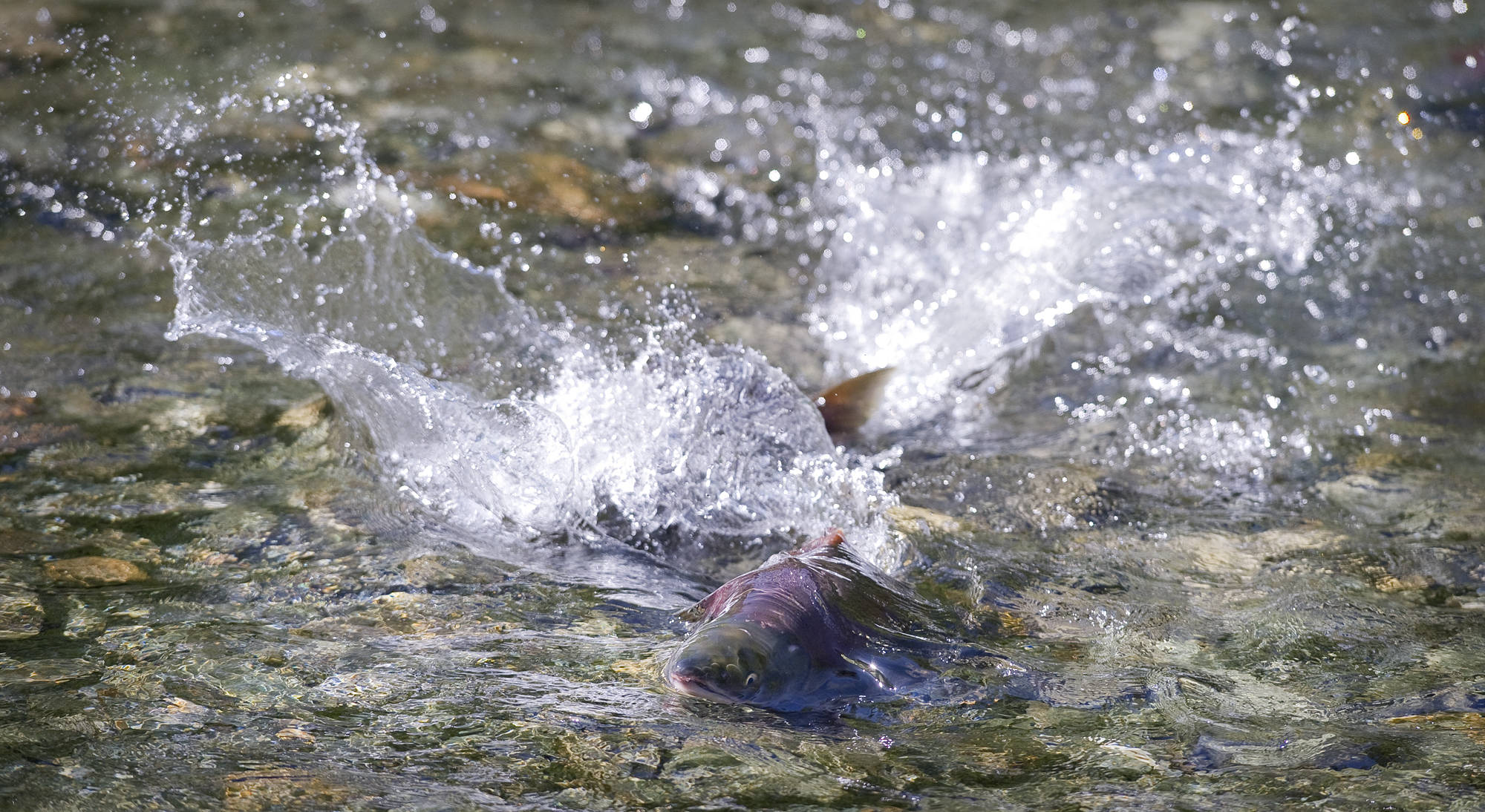Lt. Gov. Byron Mallott has rejected a proposed pro-fisheries ballot initiative as inappropriately restricting the powers of the Alaska Legislature.
On Tuesday morning, the lieutenant governor’s office announced Mallott has concurred with a Department of Law opinion saying the initiative violates Article XI, section 7 of the Alaska Constitution. That section says a ballot initiative “shall not be applied … to appropriations.” Appropriations don’t just mean money; they can mean grants of land or water.
Assistant Attorney General Elizabeth Bakalar, in a memo accompanying the decision, wrote that the initiative is so wide-ranging that it would “prohibit the use of anadromous waters for certain development purposes, leaving insufficient discretion to the legislature to determine how to allocate those state assets.”
Sponsors now have 30 days to appeal the decision to a judge.
“I think it’s horrible,” said Mike Wood of the Susitna River Coalition and one of the measure’s sponsors. “I think it’s very much politically driven. I’m disappointed that the lieutenant governor’s kind of going along with it. I could see this coming from Bill Walker, but not from the lieutenant governor.”
“We’re really disappointed,” said Gayla Hoseth of Dillingham, the second of the measure’s three sponsors. “We’re really disappointed in the decision the lieutenant governor made to deny our ballot initiative.”
Wood, Hoseth and Brian Kraft of Anchorage applied in spring this year to put the ballot initiative to voters in fall 2018. The group Stand for Salmon was formed to back the group, and according to the Alaska Public Offices Commission has spent more than $120,000 on the effort.
Originally, backers drafted the initiative to mimic House Bill 199, a measure proposed this year by Rep. Louise Stutes, R-Kodiak.
If signed into law, HB 199 would require projects that affect salmon-bearing waters to meet tougher standards. HB 199 would also make all Alaska rivers, streams and lake salmon-bearing by default; a project would have to prove that a body of water does not contain salmon.
The first draft of the initiative was greeted with a warning from the lieutenant governor’s office: the proposal was likely unconstitutional and probably would be rejected.
After that warning, Wood and others withdrew their first draft and drew up another version. That’s the version that was rejected by the lieutenant governor on Tuesday. Under the Alaska Constitution, the lieutenant governor is the guardian of the ballot, in charge of determining whether a measure is constitutional or not.
By phone, Wood said he believes the ballot measure was caught up in electoral politics. Gov. Bill Walker is running for re-election in 2018.
“I would say Walker wants to be re-elected in 2018, and those in industry and mining will come after him if he seems to favor the side of quote-unquote green or fish,” Wood said.
He added that he believes Walker caved to lobbyists.
Alaska developers said Tuesday that Wood is misconstruing their arguments.
“We’re not saying we don’t want to protect salmon habitat or essential fish habitat … but this initiative as put forward, went too far,” said Marleanna Hall, executive director of the Resource Development Council.
In an April letter to legislators, the RDC and 17 other groups including Southeast Conference, Cook Inlet Region Inc., the Alaska Oil and Gas Association and the Associated General Contractors of Alaska warned of side effects if HB 199 or the proposed ballot measure became law.
Hall said the effects would fall on municipal projects like roads and airports as well as things like pipelines and mines.
Deantha Crockett, executive director of the Alaska Miners Association said it isn’t right to say backers of the initiative care about salmon and developers don’t.
“We do too, and we welcome at any given time constructive dialogue to learn about innovations and things like that that we can do better,” she said.
While Tuesday’s decision by the lieutenant governor is a blow to petitioners’ hopes for a 2018 vote, it’s not a fatal blow: Backers can appeal the decision to the Alaska Superior Court.
Hoseth said that decision isn’t certain.
“We need to talk among Stand for Salmon and see what options we have,” she said.
Wood likewise declined to commit to an appeal, but he said one thing is certain in his mind: “I’m really disappointed in Walker and Mallott. I expected more from them. I really wanted to vote for them in 2018. Right now, I’m having a hard time feeling the love,” Wood said.
DV.load(“https://www.documentcloud.org/documents/3993338-17FSH2-Application-Denial.js”, {
responsive: true,
height: 700,
container: “#DV-viewer-3993338-17FSH2-Application-Denial”
});
17FSH2 Application Denial (PDF)
17FSH2 Application Denial (Text)
• Contact reporter James Brooks at james.k.brooks@juneauempire.com or call 523-2258.

